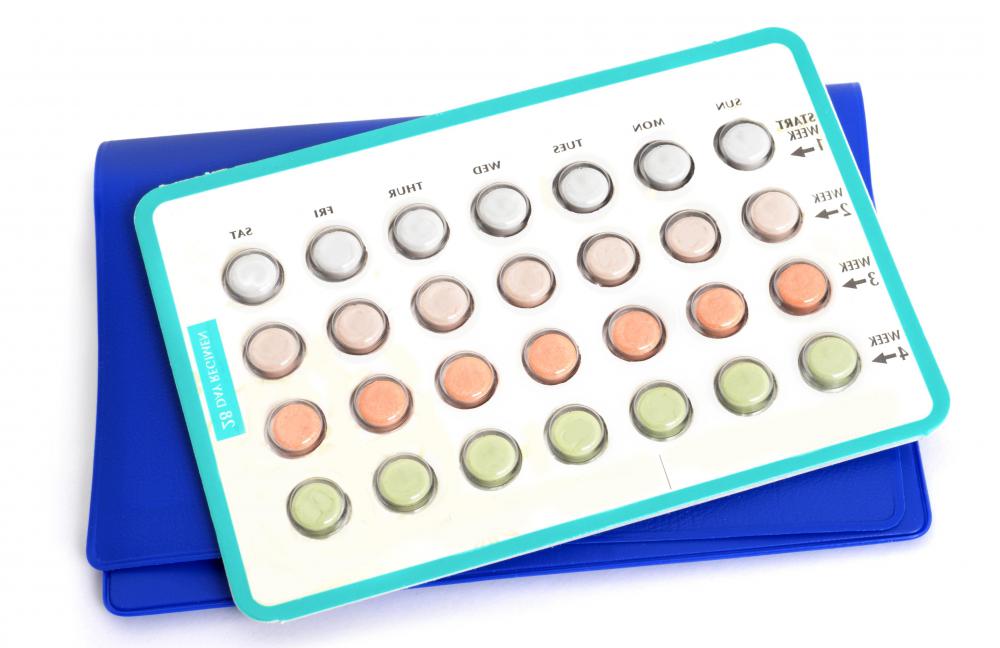At TheHealthBoard, we're committed to delivering accurate, trustworthy information. Our expert-authored content is rigorously fact-checked and sourced from credible authorities. Discover how we uphold the highest standards in providing you with reliable knowledge.
What is a Fungal Vaginal Infection?
A fungal vaginal infection is caused by an imbalance of the naturally occurring fungi in a vagina. An infection can also be the result of a certain type of fungus or from the contraction of a sexually transmitted disease (STD). A small amount of discharge is normal for woman, especially during ovulation, but a large amount of thick discharge can be a sign of a fungal infection. If a woman experiences itchiness or pain during intercourse or while urinating, she may have an infection. Women should consult a physician who can test for an infection, determine the cause, and prescribe a treatment plan.
Candida albicans is responsible for most fungal vaginal infections and yeast infections. Yeast is naturally present on the skin and sometimes in the vagina, but if the fungus is introduced and the woman’s immune system does not prevent the fungi from growing and spreading, an infection can occur. Women taking antibiotics, birth control pills, or cortisone medications are more likely to develop a fungal infection of the vagina, as are those undergoing chemotherapy, are pregnant, and those who commonly use douches. The natural relationship between bacteria and fungi is often unbalanced by both menopause and stress, causing a yeast infection.

The fungus can spread to the vagina if something that has come in contact with the anus, such as toilet paper, is used on the vagina. Baths and wearing tight, constrictive clothing can also spread candida. A yeast infection can cause burning, itching, and inflammation. Thick white or gray discharge or crumbly discharge with an odor is a common symptom of a fungal vaginal infection.

Some women are more prone to contracting a fungal vaginal infection, but most women will experience a yeast infection at some point in their life. The infection is not serious, and most yeast infections can be treated with over-the-counter medications. A physician can do a vaginal culture by scraping the lining of the vagina, or a blood test can be performed to test for a fungal infection. Antifungal medications applied topically and sometimes in conjunction with an oral medication may be prescribed. There are also vaginal suppositories that can treat an infection.

Woman should consult a physician if they suspect that they have a fungal vaginal infection. The symptoms of a yeast infection may be caused by another disease, such as chlamydia or gonorrhea. Symptoms of bacterial vaginitis or trichomonal vaginitis are similar to the symptoms of a yeast infection, and could be the cause of the infection.
AS FEATURED ON:
AS FEATURED ON:


















Discussion Comments
Eating at least one serving of yogurt every day is a good way to prevent yeast infections. I used to get them several times a year, but after I started eating yogurt every day, I stopped.
The live cultures prevent the infection. You can also get acidophilus pills that have live cultures in them if you don't like eating yogurt. Both work equally well.
@JackWhack – Vaginal fungal infection treatment can be done at home, but bacterial infections require antibiotics. The easiest way to distinguish between the two is by whether or not you have itching.
Bacterial vaginosis really doesn't make you itch at all. It just makes you have a fishy smelling discharge.
A fungal infection will itch very much. There are over-the-counter treatments that work for many women.
However, it is possible to have both infections at once. I had both one time, so I had the itching from one and the odor from the other. I had to take both antibiotics and an anti-fungal medicine.
Sometimes, it's hard to tell if I have a vaginal bacterial infection or a fungal infection. Both produce a thick discharge.
Is there an easy way to tell the difference between a fungal infection and bacterial vaginosis? Do you need to go to the doctor for both, or can you treat them at home?
Yeast infection symptoms are almost unbearable. I hate going to the doctor for a pelvic exam, but I will go if I have a yeast infection, because I just can't live with the itching.
It's the most extreme itching imaginable. To make things worse, the itching is up inside of you, and you can't reach it to scratch it.
If you do scratch on the outside, then the area quickly becomes raw and starts to burn. It's really hard to sleep at night, and almost nothing that you put on it provides any relief.
Post your comments